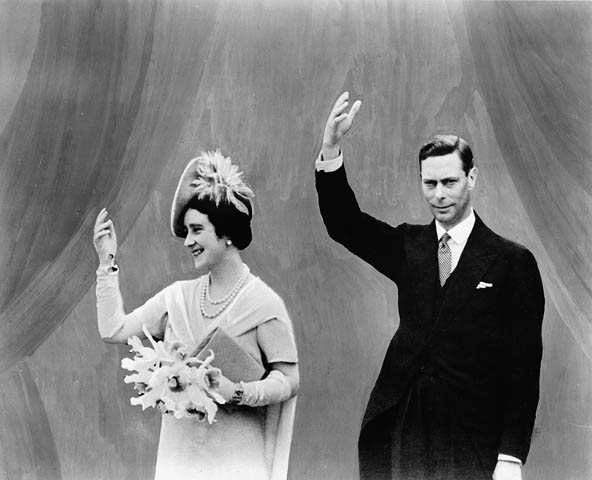King George, the stammerer.
Bertie was never expected to become King. David, his elder brother, appeared a far more charismatic leader. People turned a blind eye to his dalliances with actresses and socialites as they had with his grandfather and nobody thought he would give up the throne for Mrs Simpson. But he did. So with war with Germany looming and the country needing strong and effective symbols of leadership, Bertie was reluctantly propelled into the spotlight. But Bertie had a speech impediment; he stammered. His voice became paralysed with fear whenever he had to speak in public.
The King’s Speech, which was released on Saturday and stars Colin Firth as King George and Helena Bonham Carter as Queen Elizabeth, is a moving and humorous account of Bertie’s relationship with his Australian speech therapist, Lionel Logue, who helps him overcome his fears and deliver wartime speeches that rally the nation.
The Royal Family have always been conscious of their role and their distance from the rest of society. Some of the best bits of the film show how the King struggles to deal with Lionel Logue’s down to earth familiarity. He is propelled to an apoplectic eloquence by the sight of Lionel lounging in the Coronation chair in the Abbey.
Bertie is stuck between his instinctive desire for human affection and contact and his overwhelming sense of duty and obligation. He is a fully paid up member of the firm, but he is also a loving father and husband and needs Lionel as a friend as well as a therapist. During the war, he had a close and understanding relationship with Churchill, who had also suffered with a speech impediment when he was younger and was also frightened of his father.
Bertie, like many Royals, was brought up, not by his parents, who were always on duty, but by a nurse. But the nurse preferred his older brother and was callous and cruel to Bertie, pinching him and depriving him of food so he lost weight. David also used to tease him and his father, King George V, had no patience with his stammering. Queen Mary, his mother was stiff and distant, embarrassed by expressions of intimacy. So Bertie, despite being second in line to the throne, had a lonely and abusive childhood.
Bertie was also naturally left handed, but compelled to use his right hand. This experience is not uncommon in people who stammer. He had knock knees and suffered the pain of splints for years.
The film revealed how stammering is not so much a fixed mechanical defect of speech but more an emotional disorder; the overwhelming effect of fear, fear of humiliation and with the loss of an effective means of communication with other human beings, of loneliness.
Bertie did not stammer if he sang the words, or when music was played into his ears at the same time. When Lionel encouraged him to swear, utter the rudest words he could think of, it threw Bertie into conflict; he was brought up to repress any expression that was improper. But once he had permission, he swore with gusto and no hesitation. All these techniques facilitated emotional expression and eliminated his self consciousness. He could communicate with his wife and daughters quite confidently, but his brother, David and his father could readily reduce him to a state of paralysis.
Lionel and Bertie remained friends for the rest of the latter’s life. He was there to inspire confidence during all the King’s wartime speeches. This was the Royal Family’s finest hour. The audible and visible presence of the King and Queen in London during the blitz, their refusal to emigrate to Canada, the bombing of Buckingham Palace, the young Princess Elizabeth driving ambulances endeared them to the British people. But the King’s nervousness caught up with him. Always needing cigarettes to relax him, the King died of bronchial carcinoma in 1952.



